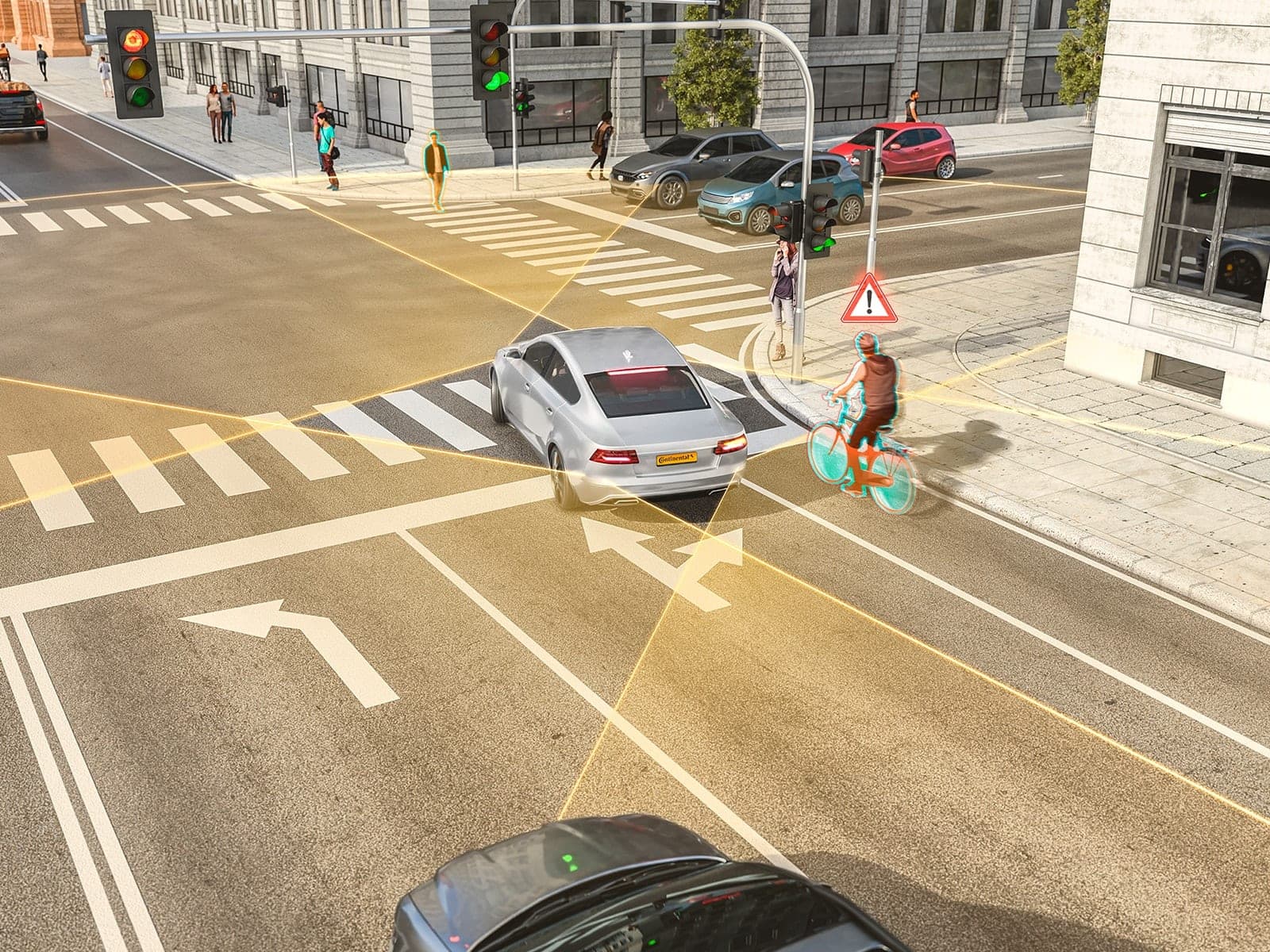
#Cycling
Sharing the road responsibly
Stay Wider of the Rider and keep every road user safe

According to a survey conducted by the London Cycling Campaign, up to two-thirds of cyclists face a significant danger on the road because of “close passing” by drivers. In response to this road safety issue, Continental and the LCC have launched an education and awareness initiative called ‘Stay Wider of the Rider’.
The findings from the survey*, which attracted nearly 3,000 responses online, are that 23% of cyclists experience close passing at least once every time they cycle. A further 45% said it happened more frequently. That means two-thirds face the problem on a regular basis, exposing them to the threat of accidents and bodily harm.
In another question, cyclists were to rate their experience of close passing on a scale of 0-5, where 5 represents the most alarming. The average rating was 4.
The LCC survey also found that, because of close passing, many cyclists felt compelled to change their behaviour significantly.
- 50% said they now cycled in the centre of the lane as much as possible;
- 32% said they'd made changes to the routes they cycled;
- 22% admitted that they avoid cycling on busy roads because of the risk of close passing.
As a committed partner of events like Prudential RideLondon, we believe it is crucial that drivers and cyclists can be safe side-by-side when travelling. Initiatives such as the Stay Wider of the Rider campaign reaffirm the idea of how we can raise much-needed awareness to ultimately keep every road user safe.
Mark Griffiths, Continental Tyes Safety Expert
Advice for drivers
The safe distance for overtaking a cyclist will depend on the speed and size of the vehicle you’re driving. As a basic guideline, the UK Highway Code recommends leaving as much space as you would when passing a car. But with ‘Stay Wider of the Rider’, Continental and the LCC has more detailed advice to ensure rider safety.
- At 30mph, allow for a minimum of 1.5 metres distance;

- At speeds faster than 30mph (48km/h), allow for a minimum of 2 metres distance;
- In slow-moving traffic below 20mph (32km/h), do not overtake a cyclist unless there is at least 1 metre distance.
If there isn’t enough space to pass safely, drivers should remain behind the cyclist until such time space becomes available.
It’s vital to ‘Stay Wider of the Rider’ because close passing is an intimidating and significant hazard. To a cyclist, it can be deeply unsettling to have a one-ton object suddenly bearing down on them.
Up to a third of reported near misses between cyclists and motor vehicles involve close passing. Not only is this dangerous for cyclists; it also discourages people from embracing more forms of sustainable transport. Fear of injuries on the road is one of the main factors deterring people from cycling.
Think like a cyclist
Cyclists in urban traffic tend to ride away from the kerb and parked cars, or even in the middle of the lane, because they’re following standard road safety procedure.
For one thing, they’re riding at least a metre away from parked cars to avoid being hit by a car door suddenly opening. Forcing a cyclist nearer to a parked vehicle – by passing too closely – risks causing a collision which could throw the cyclist into the path of a motor vehicle.
And when passing side streets, a careful cyclist will position themselves for best visibility where a vehicle would be, which is in the middle of the lane. Riding in the primary road position on narrower roads is safer than nearer the kerb; the cyclist will then move aside for passing traffic when it's safe to do so.
What we urgently need is a far wider campaign to raise awareness among millions of drivers just how dangerous close passing is. LCC will continue to campaign for more protected space for cycling, but we need initiatives like Stay Wider of the Rider to help educate drivers and reduce road danger for cyclists.
Tom Bogdanowicz, Senior Policy and Development Officer of the London Cycling Campaign
*Online survey carried out between 19-25 June 2018 via SurveyMonkey with a link sent to the LCC database of over 20,000 members and supporters. Nearly 3,000 responded and answered.

